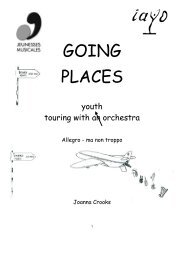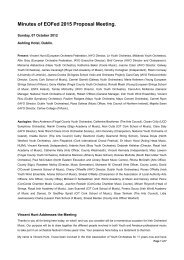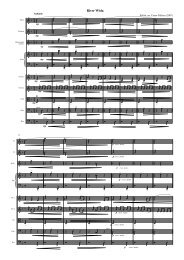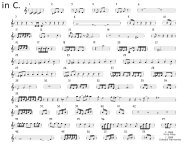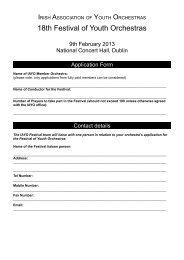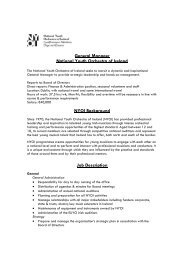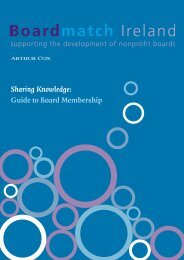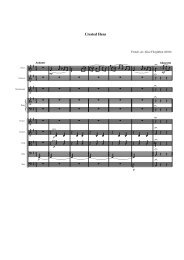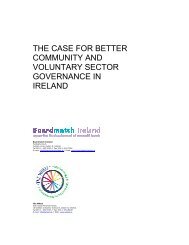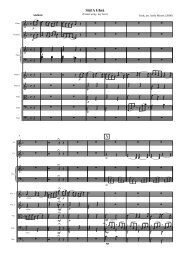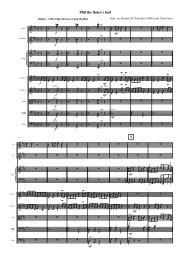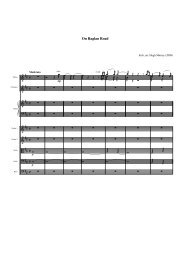A SOUND EAR II - Association of British Orchestras
A SOUND EAR II - Association of British Orchestras
A SOUND EAR II - Association of British Orchestras
Create successful ePaper yourself
Turn your PDF publications into a flip-book with our unique Google optimized e-Paper software.
A <strong>SOUND</strong> <strong>EAR</strong> <strong>II</strong><br />
MYTH BUSTING<br />
<strong>Orchestras</strong> are not loud<br />
Yes they are. So far attention has focused on the large ensembles, but early measurements on chamber orchestras<br />
indicate that they are not as quiet as we had hoped.<br />
Music is NOT harmful<br />
There are studies showing that music you enjoy causes less damage than noise <strong>of</strong> the same energy – it is thought to<br />
be related to the effect <strong>of</strong> stress on healing mechanisms. However, we know about stress levels in musicians, and the<br />
same studies also showed that music you do not enjoy causes more damage than plain noise.<br />
Musicians do NOT go deaf<br />
Yes they do. Possibly not as much as you would expect (see later), but they suffer types <strong>of</strong> hearing damage that<br />
interfere with their ability to play accurately or to tolerate the wide dynamic range common in orchestras.<br />
Consent<br />
Time and again, people suggest they could just sign a note to say they do not want to be protected. That would be<br />
ineffective and unwise. In the first place, you cannot consent to be harmed at work. In the second place, any such<br />
note or agreement would be an illegal contract – not only is it unenforceable, it can also be evidence that both parties<br />
broke the law.<br />
Be aware that UK health and safety law requires that employees (including freelancers for the time being working<br />
under the orchestra’s control) cooperate with their employer to enable the employer to carry out legal duties.<br />
Funding<br />
One <strong>of</strong> the reasons for health and safety law is to ensure that the costs are largely borne by the producer <strong>of</strong> the risk,<br />
rather than society. Although some orchestras have been able to obtain grant funding for major programmes such as<br />
acoustic treatment <strong>of</strong> a pit, and the MBF has funded further orchestral training, there are no special grants for health<br />
and safety programmes – it is just part <strong>of</strong> the cost <strong>of</strong> running your business.<br />
Practicability<br />
Noise control in orchestras is not easy – we cannot distance players from the dominant risk to their hearing (their<br />
own instrument), and nearly every measure to reduce risks presents side-effects. However, good management can<br />
largely obviate these side-effects, and some noise control measures create a brighter and more accurate sound,<br />
produced with a lower risk <strong>of</strong> career-ending musculo-skeletal injury.<br />
Freelancers<br />
The majority <strong>of</strong> musicians are self-employed. If they were not required to comply with the law, the playing field would<br />
be grossly distorted. UK health and safety law applies to the self-employed and to those who engage them. The<br />
situation is different in some EU states.<br />
Photo - cbso-watsongallery.co.uk<br />
7



